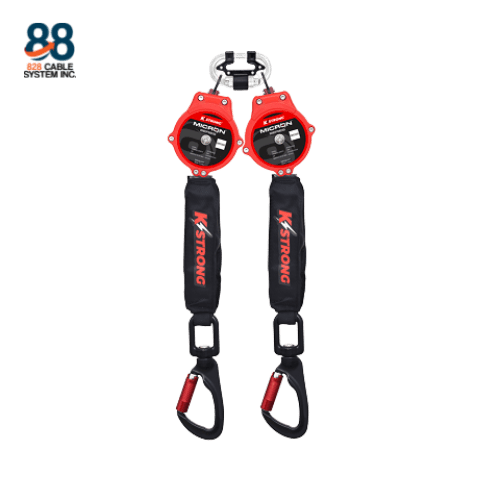
In today’s data-driven world, the role of a data analyst is vital for organizations seeking to derive valuable insights from their vast amounts of data. Data analysts possess a unique set of skills and qualifications that enable them to extract meaningful information and make data-driven decisions. However, breaking into the field and securing a data analyst job can be challenging. This is where job assistance programs for data analysts come into play. In this blog post, we will explore the significance of job assistance for aspiring data analysts and how it can help bridge the gap between candidates and career opportunities.
Key Skills and Qualifications for Data Analysts
To excel as a data analyst, certain key skills and qualifications are essential. First and foremost, a solid foundation in technical skills is crucial. Proficiency in programming languages such as Python and R is highly sought after, as they are widely used for data analysis tasks. Additionally, a strong command of SQL for querying and manipulating databases is vital. Data visualization tools such as Tableau and Power BI are also important for effectively communicating insights to stakeholders.
While technical skills are essential, data analysts must also possess analytical abilities, critical thinking skills, and a knack for problem-solving. They need to be able to understand complex datasets, identify patterns, and draw meaningful conclusions. Moreover, data analysts should have a good grasp of the domain in which they operate. Understanding the industry or field they are analyzing data for allows them to contextualize their findings and provide actionable insights. Lastly, strong communication skills are crucial as data analysts often need to present their findings to non-technical stakeholders.
Challenges Faced by Data Analysts in Job Search
Securing a data analyst job can be a daunting task due to various challenges faced by candidates. One common challenge is the highly competitive nature of the job market. With the increasing demand for data analysts, there is often intense competition for available positions. Additionally, many entry-level data analyst roles require prior experience, making it difficult for fresh graduates or career changers to break into the field.
Another challenge is the limited networking opportunities for aspiring data analysts. Building professional connections and expanding one’s network can significantly enhance job prospects. However, without proper guidance and exposure, it can be challenging for candidates to connect with industry professionals and find relevant job opportunities. Furthermore, showcasing one’s skills and qualifications in a competitive job market can be tricky, especially when faced with limited work experience.
Benefits of Data Analyst Job Assistance
Data analyst job assistance programs offer numerous benefits to candidates seeking to establish a successful career in the field. These programs are designed to provide guidance, support, and resources tailored specifically to the needs of aspiring data analysts.
One of the primary benefits is the opportunity to receive guidance from industry experts. Job assistance programs often have experienced professionals as mentors who can provide valuable insights into the industry, offer career advice, and help candidates navigate the job market. This personalized guidance is invaluable for candidates looking to gain a competitive edge.
Furthermore, job assistance programs offer networking opportunities. These programs often organize events, workshops, and meetups where candidates can interact with industry professionals, potential employers, and fellow data analysts. Building connections within the industry can open doors to hidden job opportunities and provide a supportive community for professional growth.
Tips for Finding Effective Data Analyst Job Assistance Programs
When searching for a data analyst job assistance program, it’s important to consider several factors to ensure you choose the right one for your needs. Firstly, research the program’s reputation and track record. Look for reviews and success stories from previous participants to gauge the program’s effectiveness.
Additionally, evaluate the program’s curriculum and ensure it covers the essential technical skills required for data analysis. Practical hands-on projects, internships, and real-world case studies are indicators of a comprehensive program that will provide you with practical experience.
Mentorship opportunities are also crucial. Seek programs that offer one-on-one mentorship with experienced data analysts who can guide you throughout your career journey. Mentorship can provide personalized advice, valuable insights, and help you develop the necessary skills to excel in the field.
Lastly, choose a program that aligns with your career goals and interests within data analysis. Some programs may focus on specific industries or sectors, while others may have a broader approach. Consider your career aspirations and ensure the program you select aligns with your desired path.
How to Make the Most of Data Analyst Job Assistance
To maximize the benefits of a data analyst job assistance program, there are certain steps you can take. Actively participate in networking events organized by the program, as they provide an opportunity to connect with industry professionals and potential employers. Networking can lead to valuable connections, mentorship opportunities, and job referrals.
Additionally, make use of career counseling services offered by the program. Career counselors can help you optimize your resume, polish your interviewing skills, and provide guidance throughout the job search process. They can also assist in identifying suitable job openings and help you tailor your applications to stand out.
Continuously invest in your professional development. Data analysis is a rapidly evolving field, and staying updated with the latest tools, techniques, and industry trends is crucial. Take advantage of any training resources, webinars, or workshops provided by the job assistance program to enhance your skill set.
Success Stories: Real-Life Examples of Data Analysts Who Benefited from Job Assistance
To inspire and motivate aspiring data analysts, let’s explore a couple of success stories of individuals who have benefited from data analyst job assistance programs. These individuals overcame challenges, gained relevant experience, and secured rewarding careers in data analysis, thanks to the support and resources provided by the programs.
- Example 1: Jane, a recent graduate with a background in statistics, struggled to find job opportunities due to her limited work experience. Through a data analyst job assistance program, she gained hands-on experience by working on real projects and received mentorship from industry professionals. This helped her build a strong portfolio and secure a data analyst position at a renowned technology company.
- Example 2: John, a career changer, lacked the technical skills required for a data analyst role. He enrolled in a job assistance program that provided comprehensive training in programming, SQL, and data visualization tools. With the guidance of experienced mentors, John developed his analytical skills and successfully transitioned into a data analyst role at a leading financial institution.
Takeaway
Securing a data analyst job can be challenging, but with the right job assistance program, aspiring data analysts can bridge the gap between their skills and career opportunities. By providing guidance, networking opportunities, and industry insights, these programs equip candidates with the necessary tools to succeed in the competitive data analyst job market. If you’re passionate about data analysis and seeking a rewarding career in the field, consider exploring data analyst job assistance programs to boost your chances of success.



